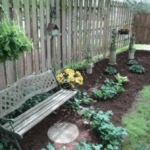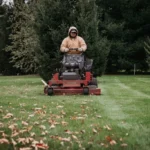Sparta Illinois Lawn Care Guide for Homeowners

Maintaining a healthy, attractive lawn in Illinois requires more than just occasional mowing. The state’s unique climate, soil conditions, and weather patterns create specific challenges for homeowners who want lush, green grass. Whether you live in a rural area with wide open yards or in a suburban neighborhood with smaller plots, understanding the principles of proper lawn care will help you keep your property looking its best.
This guide will walk you through the essential practices for lawn maintenance in Illinois, from soil preparation and grass selection to mowing techniques, weed control, and professional care options. By following these strategies, you can ensure your lawn remains healthy and vibrant year-round while avoiding common issues such as patchy growth, excessive weeds, or poor drainage.
Understanding Illinois Soil and Grass Types

Illinois lawns typically grow on soil types that vary from rich, loamy soil in the central regions to heavier clay soils in the north and south. Knowing your soil type is essential because it determines how water drains, how nutrients are absorbed, and which grass species will thrive.
Cool-season grasses such as Kentucky bluegrass, perennial ryegrass, and fine fescue are common choices in Illinois because they grow well in the state’s temperature ranges. Some homeowners also incorporate tall fescue for its drought tolerance and durability. Conducting a soil test before planting or overseeding is an excellent first step to determine pH levels and nutrient deficiencies. Amending the soil with lime or sulphur can help correct pH imbalances, while adding organic matter improves structure and nutrient content.
Watering Techniques for Healthy Growth

Watering is one of the most critical factors in maintaining a healthy lawn. Illinois lawns typically need around one to one and a half inches of water per week, whether from rainfall or irrigation. Deep, infrequent watering encourages strong root growth, while shallow, frequent watering leads to weak roots that are more vulnerable to drought and disease.
Watering in the early morning is best, as it allows the grass to absorb moisture before the heat of the day and reduces the risk of fungal diseases. Avoid watering in the evening because prolonged moisture on the leaves can promote disease. Installing a sprinkler system or using timers can help ensure your lawn receives consistent hydration, especially during dry spells in the summer.
Mowing Practices for a Thick, Lush Lawn

Proper mowing is more than just keeping your grass short. The height at which you mow directly affects the health of your lawn. For most Illinois grasses, keeping the mowing height between two and a half to three and a half inches is ideal. Taller grass shades the soil, retains moisture better, and helps crowd out weeds.
Always mow with sharp blades to ensure clean cuts, as dull blades tear the grass and make it more susceptible to disease. Change mowing patterns regularly to prevent soil compaction and ruts. Additionally, avoid cutting more than one-third of the grass blade at a time, as removing too much at once can stress the plant.
Fertilization for Lasting Lawn Health

Fertilizing your lawn provides essential nutrients that grass needs to grow strong and resist weeds, pests, and diseases. Illinois homeowners should choose a fertilizer with the right balance of nitrogen, phosphorus, and potassium for their soil type and grass species.
A slow-release fertilizer is often the best choice because it delivers nutrients over time, reducing the risk of nutrient loss through runoff. Applying fertilizer evenly with a spreader helps avoid patchy growth. If your soil test reveals specific nutrient deficiencies, targeted amendments can be added to correct them.
Weed and Pest Control Strategies

Weeds compete with grass for nutrients, water, and sunlight, so keeping them under control is essential for a healthy lawn. Common weeds in Illinois include dandelions, crabgrass, and clover. Using a pre-emergent herbicide in early spring can help prevent weed seeds from germinating, while post-emergent treatments can target existing weeds.
Pests such as grubs, chinch bugs, and sod webworms can damage lawns by feeding on roots and blades. Monitoring for signs of pest activity, such as brown patches or spongy turf, allows you to act quickly with the appropriate treatments. Integrating pest management practices that include both chemical and natural solutions will help maintain balance without harming beneficial insects.
Ventilation and Overseeding for Stronger Lawns

Over time, soil compaction can prevent water, air, and nutrients from reaching the grass roots. Core aeration, which removes small plugs of soil from the lawn, helps relieve compaction and promotes root growth. Aerating once a year, especially in high-traffic areas, can dramatically improve lawn health.
Overseeding after aeration introduces new grass varieties that enhance density, improve color, and increase resistance to disease. This is particularly helpful for repairing bare spots and thickening thin lawns. Choosing seed blends designed for Illinois climates will yield the best results.
Professional Lawn Care Services for Long-Term Success
While many homeowners enjoy caring for their lawns themselves, professional lawn care services can save time, provide expert guidance, and deliver results that are difficult to achieve on your own. Experienced lawn care providers understand local soil conditions, grass types, and climate challenges unique to Illinois, allowing them to design maintenance plans that keep lawns healthy and beautiful year-round.
If you are looking for reliable and high-quality lawn care service in Sparta Illinois, Plum Creek Lawncare is an excellent choice. They offer affordable lawn care maintenance solutions made to your property’s needs. Their team ensures your lawn stays green, lush, and well-maintained without the disturbance of doing it yourself. With their professional touch, you can enjoy a pristine yard while freeing up your time for other priorities.
Conclusion
A well-maintained lawn not only enhances your home’s curb appeal but also creates a welcoming outdoor space for family and friends. By understanding your soil, selecting the right grass types, following proper watering and mowing practices, and addressing fertilization, weed control, and aeration needs, you can achieve the vibrant, healthy lawn you’ve always wanted.
For homeowners in and around Sparta, Illinois, partnering with Plum Creek Lawncare offers the added benefit of expert care at an affordable rate. Their dedication to providing quality, dependable lawn maintenance means your yard will remain an asset to your home throughout the year. With the right approach and the right professionals, your Illinois lawn can thrive for many years to come.


